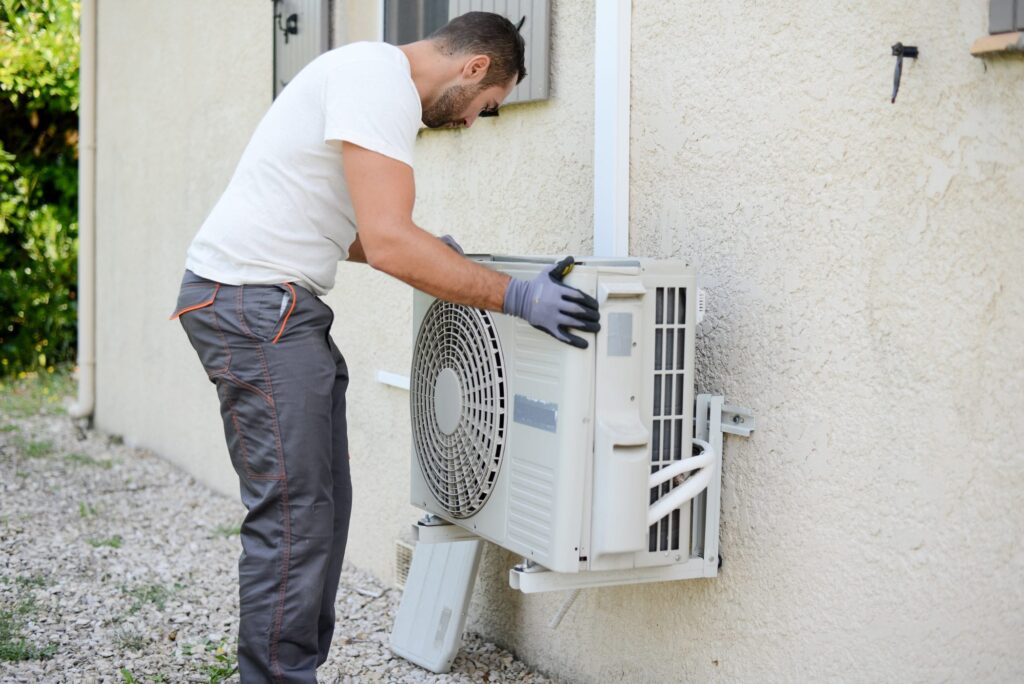
How Does Indoor Air Quality Impact HVAC Efficiency in Alpharetta Home
Indoor air quality is an important factor that influences the efficiency of HVAC systems in homes, particularly in regions like Alpharetta, GA, where temperature extremes can demand a lot from heating and cooling systems. Understanding this relationship can help homeowners maintain a comfortable indoor environment while managing energy costs effectively.
The Importance of Indoor Air Quality in Alpharetta
Indoor air quality services Alpharetta, GA, are vital for maintaining clean and healthy air in your home. Pollutants like dust, pollen, mold spores, and volatile organic compounds can accumulate indoors, especially in tightly sealed environments designed for energy efficiency. Poor air quality not only affects the health of residents but also impacts the performance of your HVAC system Alpharetta, GA.
When air quality is compromised, HVAC systems work harder to filter out contaminants and maintain comfortable temperatures. This extra strain can lead to increased energy consumption and reduced system lifespan. For Alpharetta homeowners, where heating and cooling are essential throughout the year, ensuring good indoor air quality is imperative for system efficiency and durability.
How Contaminants Affect HVAC Systems
The presence of excessive dust, pet dander, and other particulates can clog HVAC filters more quickly than expected. This results in reduced airflow, forcing the HVAC unit to expend more energy to circulate air throughout the home. Additionally, when components like coils and blower motors are covered in dirt, the system’s ability to heat and cool the home efficiently diminishes, leading to uneven temperatures and increased operational costs.
For indoor air quality services Alpharetta, GA, it’s recommended to regularly replace or clean HVAC filters and consider duct cleaning services to remove buildup within the ventilation system. These steps are essential for maintaining an efficient HVAC system Alpharetta, GA.
Benefits of Improved Air Quality
Enhancing indoor air quality does more than just extend the lifespan of HVAC systems—it also improves overall comfort and health. Residents in Alpharetta with allergies or respiratory issues will particularly benefit from reduced irritants in the air. Additionally, cleaner air translates to fewer odors, less dust on surfaces, and a fresher indoor environment.
Implementing Solutions for Better Air Quality
Homeowners can improve their indoor air quality and HVAC efficiency by adopting several strategies:
- Regular maintenance: Scheduling regular check-ups for your HVAC system Alpharetta, GA, can prevent unexpected failures and ensure the system is running efficiently.
- Upgraded filtration: Using higher-quality filters or installing air purifiers can significantly reduce the amount of airborne contaminants.
- Controlling humidity: In Alpharetta, humidity can impact both comfort and air quality. Dehumidifiers or humidifiers, depending on the season, can help maintain ideal humidity levels, reducing the strain on HVAC systems.
The Role of Professional Indoor Air Quality Services
For optimal results, engaging professional indoor air quality services Alpharetta, GA, is advisable. These experts can assess your home’s air quality and customized solutions tailored to your specific needs, ensuring that your air quality and HVAC efficiency are optimized.
Conclusion
At Superior Indoor Comfort, we understand the critical role that indoor air quality plays in the efficiency of your Residential HVAC system Alpharetta, GA. By ensuring your home’s air is clean, you safeguard your family’s health and enhance the performance and lifespan of your HVAC system. Invest in quality indoor air solutions to enjoy Alpharetta’s more comfortable, efficient home environment.
FAQs
What is indoor air quality?
Indoor air quality refers to the cleanliness of the air within and around buildings and structures, especially as it relates to the health and comfort of building occupants.
How does indoor air quality affect HVAC efficiency?
Poor indoor air quality can lead to clogged air filters and dirty HVAC components, which can cause your system to work harder, reduce efficiency, and increase energy costs.
What are common indoor air pollutants?
Common indoor air pollutants include dust, pollen, mold spores, pet dander, and chemical vapors from household cleaners and paints.
How often should HVAC filters be changed?
HVAC filters should typically be changed every 90 days, but homes with pets or high dust levels might require more frequent changes.
Can indoor air quality impact health?
Yes, poor indoor air quality can lead to health issues such as allergies, respiratory problems, and other conditions, particularly in individuals with pre-existing health concerns.
